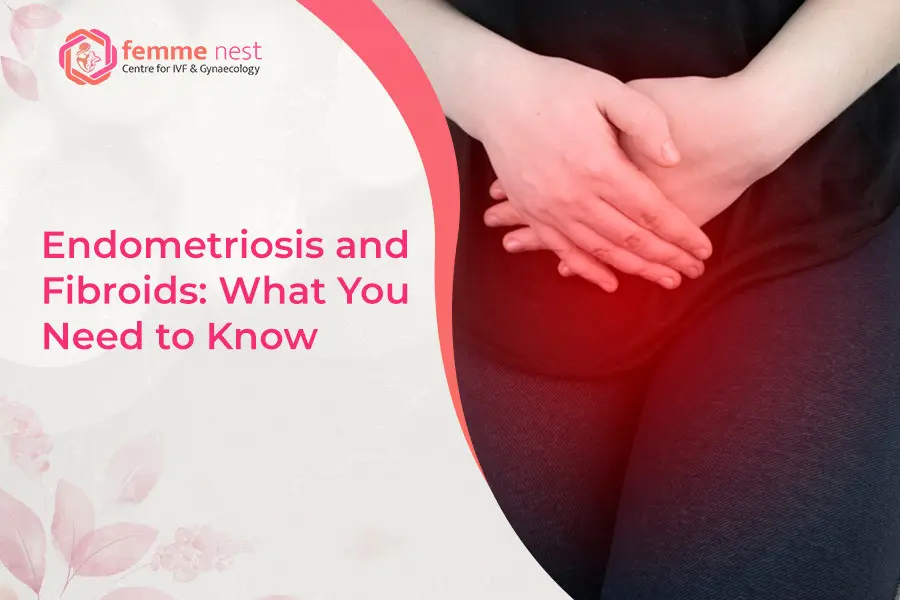Many women who experience pelvic pain may discover that endometriosis or uterine fibroids are the cause of their symptoms. There are distinctions among these illnesses' symptoms, yet some are comparable or even the same. And both of them are major reasons for a hysterectomy. However, they are extremely distinct conditions, so let’s inform you of them.
How Do They Differ?
The following are some areas where endometriosis and uterine fibroids diverge:
- In contrast to uterine fibroids, which only affect the uterus, endometriosis growths can connect to a variety of organs.
- Time of Discomfort: Both of these can produce discomfort at any time during the menstrual cycle, although endometriosis pain can occur before the start of the period and can cause pain while urinating.
- Large tumors may result in constipation in women with uterine fibroids.
- Longer Menstrual Cycles: Women with uterine fibroids experience longer cycles.
Endometriosis: What Is It?
The endometrial lining grows thicker each month to accommodate a fertilized egg. After fertilization, the endometrial lining aids in feeding the fertilized egg. (The endometrium is a lining that covers the uterus's musculoskeletal walls)
During the menstrual cycle, the unfertilized egg is lost along with a portion of the endometrial lining if fertilization is unsuccessful. When the uterine lining, also known as endometrial, sheds throughout the menstrual cycle, some of it may detach and connect to various organs that are not in the uterus. The fallopian tubes, bladder, large intestine, or even the lungs may be among these organs. These lining cells continue to expand and behave as they would if they had remained in the uterus every month.
The body of a woman will produce scar tissue to surround the blood because it will detect that the cells are not in their proper locations. Then, on certain organs, blood cysts develop, causing varying degrees of pain or discomfort.
Common Endometriosis Symptoms
- Having a painful sexual experience
- Discomfort when going to the bathroom throughout their menstruation.
- Nausea, diarrhoea, and constipation
- Both before and during the menstrual cycle, there is pain.
- Occasionally, infertility
- When urinating during their period, there is pain.
Why do Uterine Fibroids Occur?
Although mostly non-cancerous, uterine fibroids are solid tumors that can be extremely painful to the uterus and the pelvis. The size and shape of these tumors can vary, and although they typically grow extremely slowly, they do. While some women who have these fibroids experience no symptoms, others who have uterine fibroids experience excruciating pain.
Causes
Although the exact causes of these two illnesses are still unknown, many medical professionals think that oestrogen may be the main offender.
Endometriosis and fibroid existence can only be detected by a doctor. To confirm which (or both) disorders may be present, medical imaging and other tests are required. Despite some similarities in symptoms, they are two different diseases. They need unique and focused therapy. Keep in mind that the sooner you recognize the issue, the more likely you are to solve it. Fibroids and endometriosis rarely go away on their own.
Uterine Fibroid Symptoms
- Big tumors may result in constipation
- Problems urinating brought on by tumors can result in kidney problems.
- Pressure and discomfort in the pelvic area
- Occasionally, big tumors might cause pain while a woman is menstruating.
- Infertility
- Longer periods
Are you suffering from any of the above symptoms or any other infertility issues? Expert doctors and gynecologists at Femmenest are equipped to help you. Get in touch to know more and get the best care.



